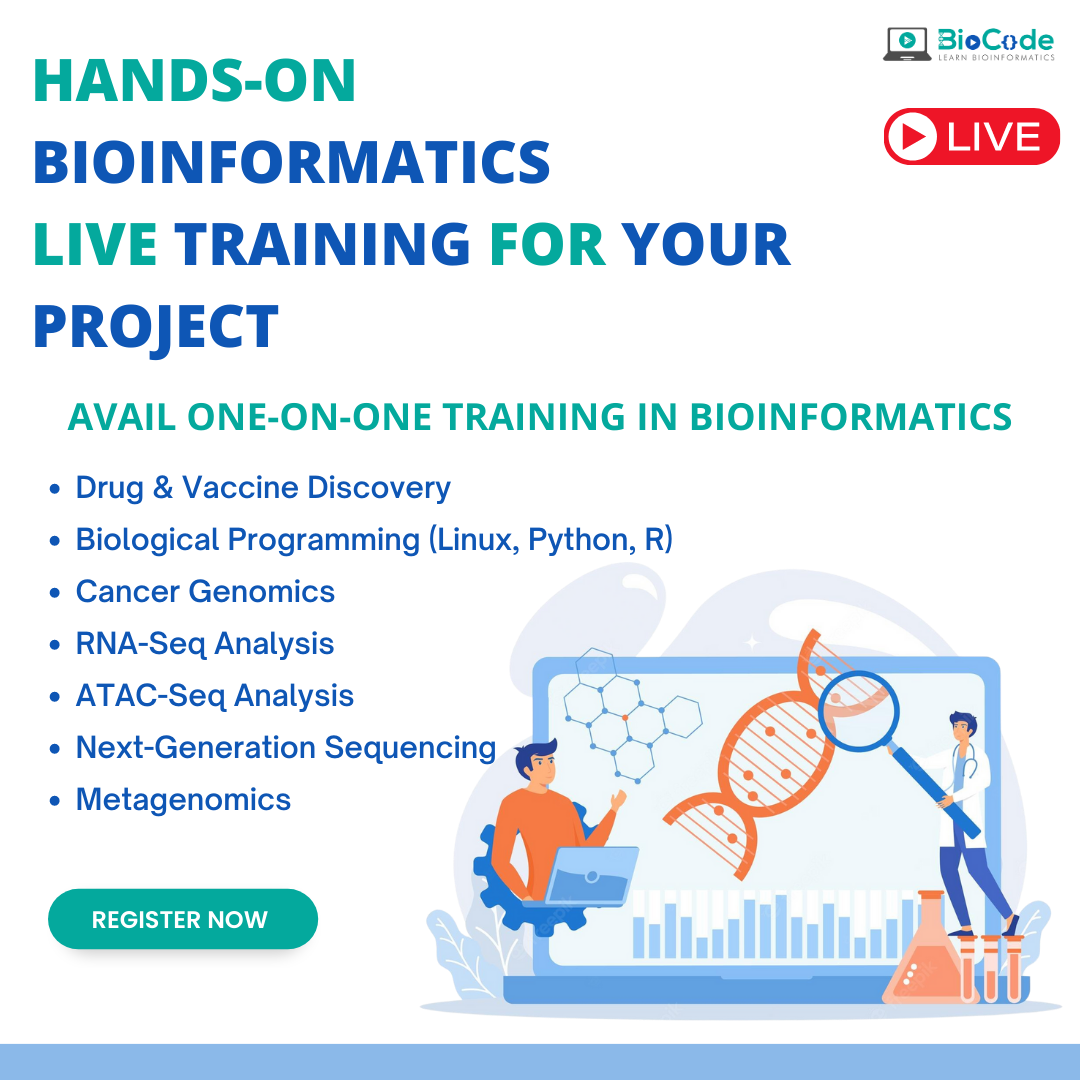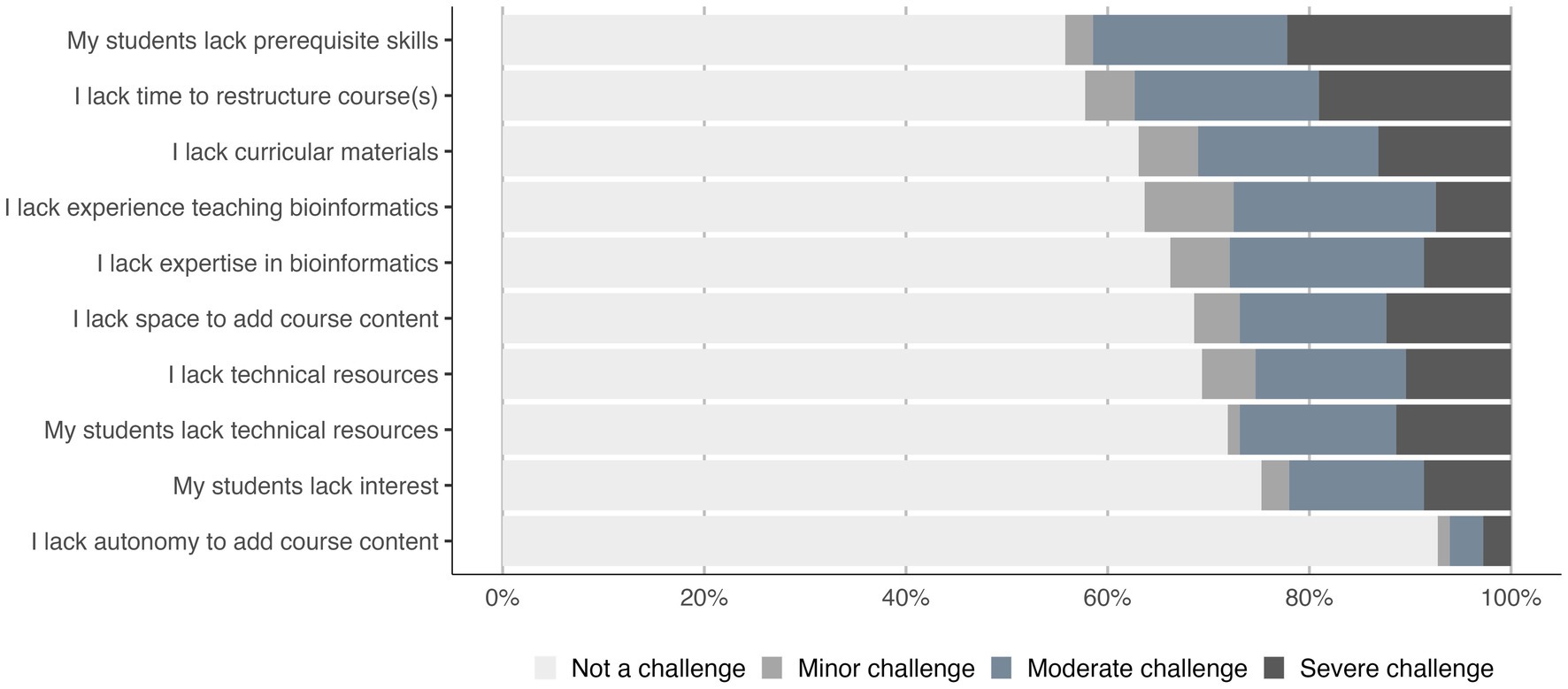Our Bioinformatics Tutor Diaries
Our Bioinformatics Tutor Diaries
Blog Article
Some Ideas on Bioinformatics Tutor You Should Know
Table of ContentsSome Ideas on Bioinformatics Tutor You Should KnowThe smart Trick of Bioinformatics Tutor That Nobody is DiscussingBioinformatics Tutor Things To Know Before You Get ThisBioinformatics Tutor for BeginnersSome Known Questions About Bioinformatics Tutor.
Of the overall participants associated with the training, 80% were pupils from public greater education organizations, while the remaining 20% came from personal institutions. To get a certification of involvement, pupils were needed to go to at the very least 90% of the overall training hours. As an outcome of this demand, a remarkable 95% of the participants effectively gotten their certificates, having not only satisfied the minimum participation standards however additionally finished all appointed tasks throughout the training.
During the height of the COVID-19 pandemic, especially between June and August 2020, the job group was charged with arranging specialized training in bioinformatics. This training was particularly aimed at students from the research team Core for Study in Applied Computer at the Federal College of Pará (UFRA) The adaptation to remote understanding platforms due to the pandemic created an opportunity to check out brand-new mentor techniques and electronic devices that enhanced both reach and performance.
This program was made to provide an obtainable yet detailed summary of Artificial Knowledge strategies, particularly as used in bioinformatics (Bioinformatics Tutor). This digital layout made it possible for engagement from trainees across Brazil, several of whom could not have had the chance to attend in-person sessions.
The Definitive Guide to Bioinformatics Tutor
Approximately 50% of the complete training hours were devoted to useful activities where pupils built smart models and applications in an array of scientific domains, including genes, molecular biology, and ecological information evaluation. These platforms made it possible for students to involve in real-time information control, design training, and algorithm experimentation.
The course drew in 80 individuals in overall. Sixty of them were associated with various college organizations in the state of Pará, while the remaining twenty came from establishments situated in five other Brazilian states. This broad geographical representation highlighted the nationwide passion in bioinformatics and the growing demand for specialized skills around. By presenting Expert system in a pertinent and functional context, the initiative served to link the gap between theory and real-world application, offering students with a strong structure for future study or work in the area.
The training campaign developed component of a wider academic outreach initiative referred to as the Bioinformatics when driving project. This task has, for many years, introduced loads of trainees to the globe of bioinformatics and computational biology. The events held under this umbrella effort have actually taken location across several areas and years, as summarized in Table 1 (List of occasions, locations, years, and complete numbers of trainees and instructors)
Several of these groups, at first brought together by their engagement in training occasions, have because gone on to generate independent clinical research in cooperation with local scholastic institutions. The training not just cultivated scientific reasoning within the context of bioinformatics yet likewise stimulated collective connections that expanded beyond the training atmosphere.
The Ultimate Guide To Bioinformatics Tutor
The very same group, excluding IH and RR, also acted as tutors for the functional training modules. Financing for the project was given with the grant 88887.200562/ 2018-00 from CAPES.
The Federal University of Pará's Workplace of Research (PROPESP/UFPA) likewise provided financial backing, especially for the production of the final manuscript. The authors declare no monetary or industrial conflicts of interest that can have affected the research. All analyses and viewpoints expressed in this article are entirely those of the authors and do not always reflect those of their respective organizations, the publisher, editors, or reviewers involved in the magazine procedure.

The Bioinformatics Tutor Statements
From an instructional viewpoint, the mentor approach used in the training was deliberately interactive. Courses were performed in a way that encouraged trainee participation and conversation, going past memorizing memorization to explore how ideas are developed, used in day-to-day live, and tested in academic setups. The training viewpoint focused on nurturing both strong and having a hard time students, providing customized assistance, and building confidence with continual mentorship and perseverance.

Each team, containing around 36 participants, was sustained by 3 advisors-- many of whom were postdoctoral researchers with specialized knowledge. These advisors not only aided develop the group projects however also facilitated their implementation, making sure that each study concern was both pertinent and properly challenging. The objective was to provide a naturally practical context that participants could explore with flexible objectives and access to curated datasets.
For additional understandings into investigate this site the method and outcomes of this project-based discovering approach, readers are routed to S1 Text, that includes thorough summaries of the instructional framework, evaluation approaches, and project themes utilized in the training sessions.
The Best Strategy To Use For Bioinformatics Tutor
Of the total amount individuals entailed in the training, 80% were trainees from public higher education and learning institutions, while the staying 20% came from personal organizations. To certify for a certification of participation, students were called for to go to at least 90% of the complete training hours. Especially, past the students who registered in the training sessions, seven seasoned teachers got involved in providing the courses, while 3 specialized research study teachers worked with the total training procedure. About 50% of the total training hours were dedicated to practical tasks where trainees constructed intelligent models and applications in an array of clinical domains, including genetics, molecular biology, and ecological data analysis. The training not just cultivated scientific thinking within the context of bioinformatics but likewise sparked collaborative connections that prolonged beyond the training atmosphere.
Report this page